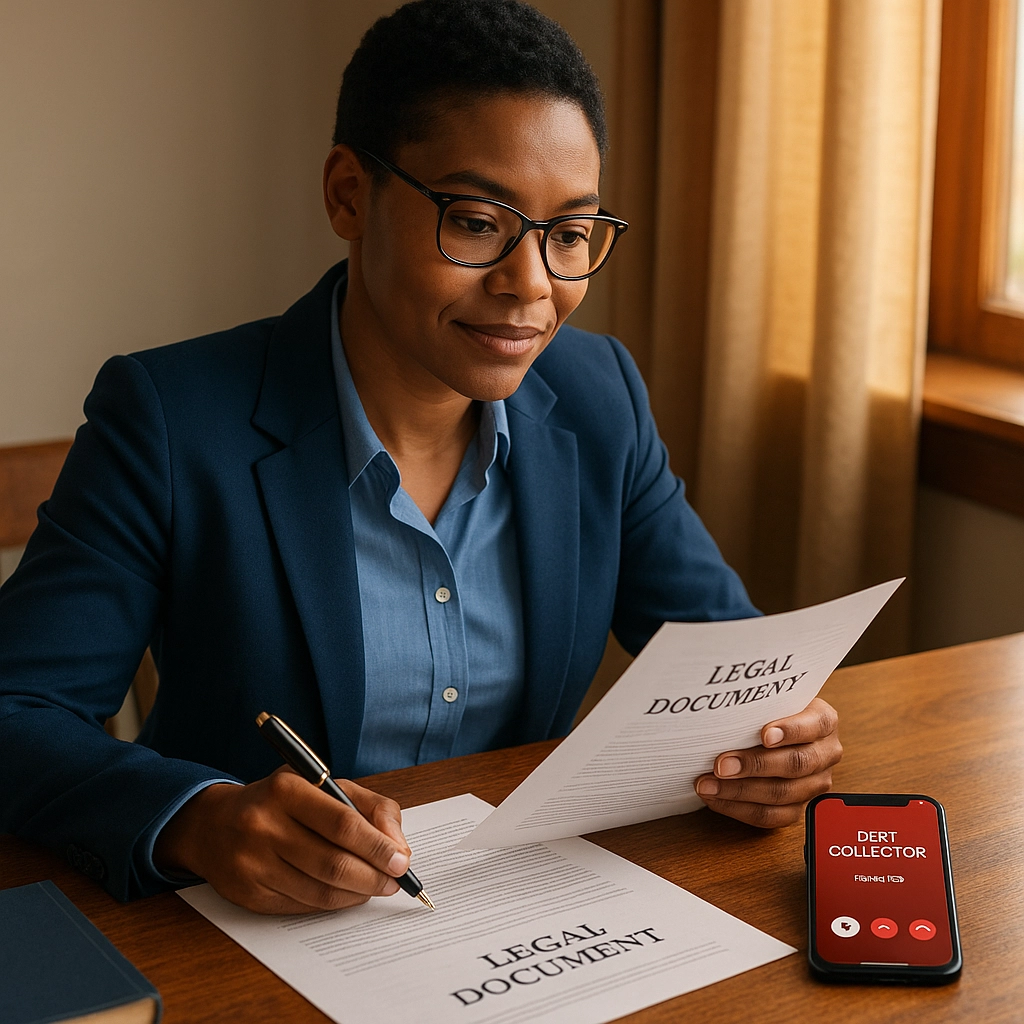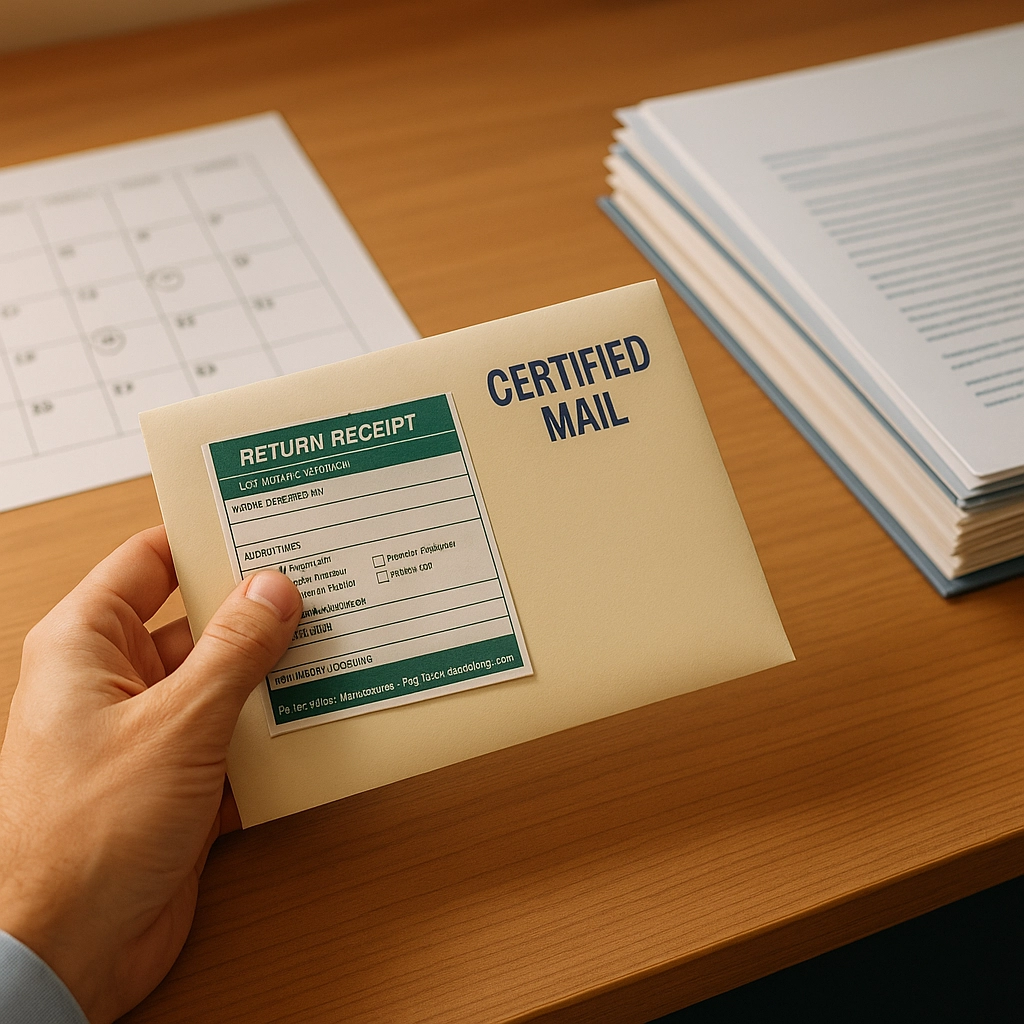Florida Debt Collectors Getting Aggressive: Here's How to Fight Back and Win
In recent months, Florida residents have seen a troubling surge in aggressive debt collection tactics. From relentless phone calls at all hours to threatening messages and even workplace harassment, debt collectors are crossing lines that many don't realize are actually illegal. If you're facing these intimidation tactics, you're not alone—and more importantly, you're not powerless.
As consumer rights attorneys in Florida, we've witnessed firsthand how collection agencies have become increasingly bold in their pursuit of payment, often trampling consumer rights in the process. But here's the good news: Florida offers some of the strongest legal protections against abusive debt collection in the country. When you know your rights and how to assert them, you can turn the tables on aggressive collectors and potentially even receive compensation for their illegal behavior.
Your Legal Shield: Understanding Florida's Debt Collection Laws
Florida residents enjoy dual protection under both federal and state laws. The federal Fair Debt Collection Practices Act (FDCPA) sets national standards, but Florida goes even further with the Florida Consumer Collection Practices Act (FCCPA).
Here's what makes Florida's protections special: unlike the federal law that only applies to third-party collectors, the FCCPA also covers original creditors. This means that even if the company you originally owed money to is collecting the debt themselves, they must still follow these strict rules.
Under these laws, debt collectors in Florida cannot:
- Call before 8 a.m. or after 9 p.m.
- Contact you at work if they know your employer prohibits such calls
- Use abusive language or threats of violence
- Pretend to be attorneys or government officials
- Threaten actions they cannot legally take (like imprisonment)
- Publish your name as someone who refuses to pay debts
- Contact you if you've hired an attorney to represent you regarding the debt
- Continue calling after you've requested they stop contact in writing

Warning Signs: How to Spot Illegal Collection Tactics
Recognizing when a debt collector has crossed the legal line is the first step toward fighting back. Here are red flags that signal violations:
Harassment and Intimidation: If collectors call repeatedly throughout the day, use profane language, or threaten you with harm, they're breaking the law. One Florida client we represented received 15 calls in a single day—a clear violation that resulted in a successful lawsuit.
Deceptive Practices: Watch out for collectors who misrepresent themselves as attorneys, claim to work for government agencies, or falsely threaten legal action they cannot take. These deceptive tactics are specifically prohibited.
Privacy Violations: Debt collectors cannot discuss your debt with anyone except you, your spouse, or your attorney. If they're telling neighbors, family members, or coworkers about your debt, that's illegal.
Documentation Failures: Collectors must provide written validation of the debt within five days of their initial contact. If they refuse to provide verification after you request it, they're violating the law.
Time-Barred Debt Collection: In Florida, most debts have a statute of limitations of five years (though this varies by debt type). If a collector is trying to sue you for a debt older than the statute of limitations, they're engaging in illegal collection practices.
Your Action Plan: 7 Steps to Fight Back and Win
When facing aggressive collection tactics, follow these strategic steps to protect yourself and potentially turn the tables:
1. Document Everything
Start a detailed log of all collection contacts, including:
- Date and time of each call or communication
- Name of the collector and their company
- What was said (take notes immediately after calls)
- Any threatening, harassing, or deceptive statements
- How the contact made you feel (stressed, frightened, etc.)
This documentation will be crucial evidence if you need to take legal action.
2. Request Written Validation
Within 30 days of first contact, send a written request for debt validation by certified mail with return receipt. This forces the collector to provide proof that you owe the debt and that they have the legal right to collect it. They must cease collection activities until they provide this verification.
If they can't validate the debt (which happens frequently with old debts that have been sold multiple times), they legally cannot continue collection efforts.

3. Send a Cease Communication Letter
You have the right to demand that collectors stop contacting you. Send a formal cease communication letter by certified mail with return receipt. Once received, they can only contact you for very specific reasons—to confirm they're stopping collection efforts or to inform you of specific legal action they're taking.
A sample letter is available on our website at https://attorneydebtfighters.com/legal-resources.
4. Know What Not to Do
Avoid these critical mistakes:
- Never make a small "good faith" payment – This can restart the statute of limitations clock, giving collectors more time to sue you.
- Don't make promises to pay – Statements like "I'll try to pay next month" can be used against you.
- Never provide bank account information – Some collectors will attempt unauthorized withdrawals.
- Don't lose your cool – Stay calm and professional in all interactions, as recordings of your conversations could be used later.
5. Check the Statute of Limitations
In Florida, most debts have a statute of limitations of four to five years. If the debt is older than that, the collector cannot legally sue you for it. If they threaten to sue over time-barred debt, they're violating the law.
Learn more about default judgments and how to handle them on our website: https://attorneydebtfighters.com/understanding-a-florida-default-judgment-a-quick-guide.
6. File Complaints with Regulatory Agencies
Report violations to:
- The Consumer Financial Protection Bureau (CFPB)
- The Florida Office of Financial Regulation
- The Florida Attorney General's Office
- The Federal Trade Commission (FTC)
These agencies can investigate and potentially take action against the collection agency.
7. Consult with a Consumer Rights Attorney
If you've experienced serious harassment or suspect illegal practices, consult with an attorney who specializes in consumer rights. At Ziegler Diamond Law, we offer free consultations to evaluate your case. Many violations entitle you to:
- $1,000 per FDCPA violation
- Actual damages (including emotional distress)
- Attorney's fees and costs
This means legal representation often costs you nothing out of pocket, as fees are paid by the debt collector when you win.

Success Story: How Maria Turned the Tables
Maria, a Tampa resident, received over 40 calls in one week from a debt collector who also called her workplace despite her requests to stop. The collector threatened to "ruin her credit forever" and even implied she could be arrested if she didn't pay.
After consulting with our firm, Maria documented the violations, sent a cease communication letter, and ultimately filed a lawsuit. The result? The debt collector settled for $7,500 in damages, her attorney's fees were covered, and the debt itself was completely eliminated as part of the settlement.
Take Control Today
If debt collectors are making your life miserable, remember that you have powerful legal protections on your side. The law gives you tools to fight back—and potentially even be compensated for their illegal behavior.
At Ziegler Diamond Law, we've helped hundreds of Floridians stand up to aggressive debt collectors and win. We understand the stress and anxiety these situations cause, and we're committed to helping you regain your peace of mind.
Don't let debt collectors intimidate you into making financial decisions that aren't in your best interest. If you're experiencing harassment or suspect illegal collection practices, contact us for a free consultation at https://attorneydebtfighters.com/contact-us.
Remember: debt collectors are counting on you not knowing your rights. Now that you do, you have the power to fight back and win.


